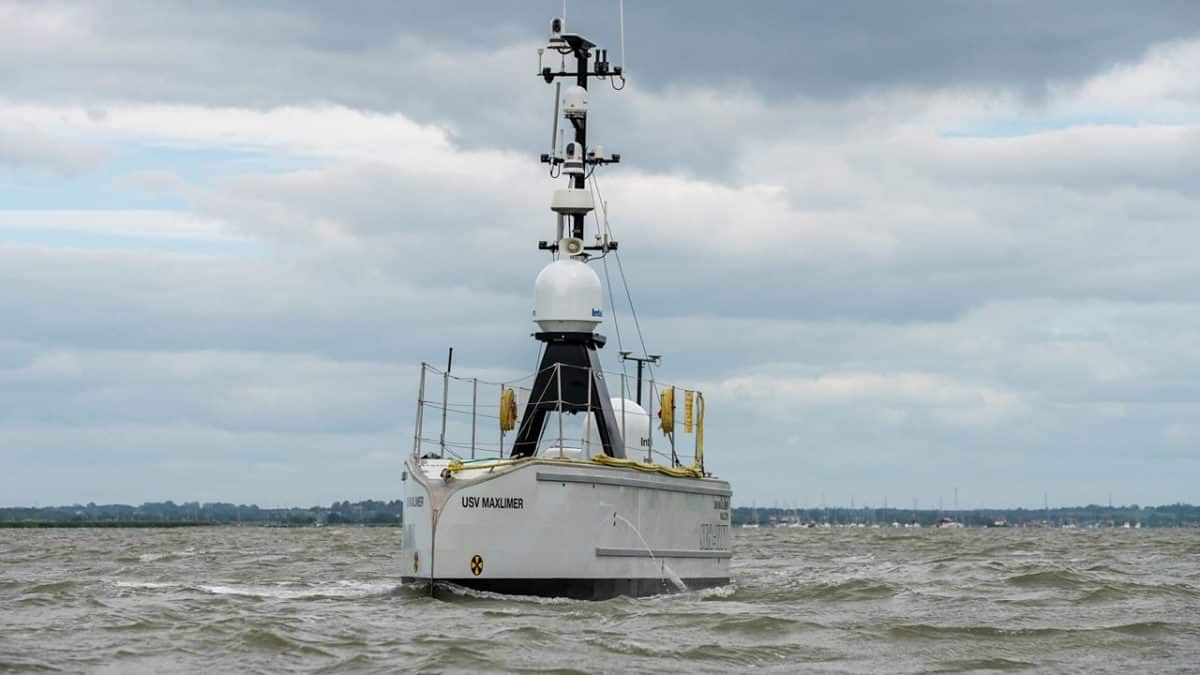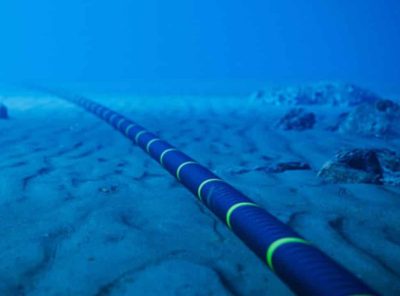A 12m long robot boat surveys Tonga Volcano
A robot boat is to gather data following Hunga-Tonga Hunga-Ha’apai’s eruption to try and help scientists what may have caused one of the fiercest volcanic eruptions in more than a century.
This programme is available NOW OnDemand at the Digital Planet Page and is available now until Wednesday the 13th of April. It will also be broadcast on Sunday the 10th of April in Phuket on 91.5 FM and 102.5 FM and Online via the Internet radio portals.
Robot Boat ‘Maxlimer’
The 12m long robot boat, called Maxlimer, will map the new volcano’s shape as well as collect readings on environmental conditions like the oxygen content of the surrounding seawater, which impacts marine life.
Ashley Skett, operations director at Sea-Kit International, the company that created the robot boat, is on the show. e-Mongolia – making life easier for those with internet access Back in 2020, Mongolia launched a digital initiative to allow government services from land access rights to social security payments, to be accessed online and the project appears to be a success, at least for those who have online access.
That’s currently around 63% of the population – so what happens to everyone else? Global Press Journal’s Khorloo Khukhnokhoi explains the positives and negatives of the scheme. Haptic robotic finger Two weeks ago we reported on a biodegradable and edible robotic finger, this week we hear from Professor Katherine Kuchenbecker from the Max Planck Institute for Intelligent Systems, who is one of the teams behind the design of a haptic robotic finger.
Giving a robotic finger a sense of touch (that is similar to our own) allows it to “know” how much pressure it is applying and therefore adapt its movements – this is key if robots are to be used in medical or care settings ensuring they do not injure the patient.
The programme is presented by Gareth Mitchell with expert commentary from Ghislaine Boddington. Studio Manager: Giles Aspen Producer: Ania Lichtarowicz
(Image: Maxliner at sea. Credit: Sea-Kit International)
The Max Planck Institute
Katherine J. Kuchenbecker directs the Haptic Intelligence Department at the Max Planck Institute for Intelligent Systems in Stuttgart, Germany. She was previously an Associate Professor of Mechanical Engineering and Applied Mechanics at the University of Pennsylvania, where she held the Class of 1940 Bicentennial Endowed Term Chair and a secondary appointment in Computer and Information Science. Kuchenbecker earned her PhD in Mechanical Engineering at Stanford University in 2006 and did a postdoctoral fellowship at Johns Hopkins University. Her research centres on haptic interfaces, which enable a user to touch virtual and distant objects as though they were real and within reach, as well as haptic sensing systems, which allow robots to physically interact with objects and people.






